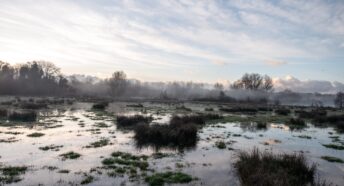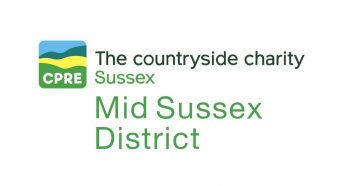Public support for plastic bag charge increases
it’s great news that plastic bag usage has slumped by around 80% – the UK’s largest retailer Tesco said in December that the number of bags had been slashed by 78% since the 5p charge was introduced, while at Morrisons, plastic bag consumption was down 80% across its stores. The Government is now collecting full usage statistics so the full picture should be clear soon.
Meanwhile, a poll partly-commissioned by CPRE has revealed increased public support for the bag charge in England [1]. The poll for the Break the Bag Habit (BTBH) coalition found that 70% of English respondents now find it reasonable to charge 5p for all carrier bags – an 8% increase in support in the eight months since the English charge came into force [2]. The increase was particularly marked amongst younger people, where support has jumped 10% [3].
Despite this encouraging news, the poll indicated that more people find the current charge confusing than not. The charge, introduced on 5 October 2015, does not apply to businesses of fewer than 250 employees, paper bags or franchises such as Subway. Answering the ICM survey, 42% of respondents found it confusing that only some shops charged for bags.
Samantha Harding, http://alwaysvaltrexonline.com spokesperson for the Break the Bag Habit coalition, said:
“People are clearly confused by the current scope of the charge. A universal scheme that applies to all bags and all retailers will eliminate confusion, boost public support, and most importantly reduce bag usage and litter.
“With a frankly ridiculous £1 billion litter bill, England is lagging behind the other home nations. Now that the scheme has been successfully launched, the Government should review the exemptions and introduce a universal charge.”
[1] The 2016 poll was conducted by ICM on 11th of May 2016. ICM interviewed a random sample of 2000 GB adults, including 1742 in England, aged 18+ online. The results have been weighted to the profile of all adults. ICM is a member of the British Polling Council and abides by its rules. Further information is available at www.icmresearch.co.uk.
[2] The Break the Bag Habit coalition consists of the Campaign to Protect Rural England (CPRE), Greener Upon Thames, Keep Britain Tidy, Surfers Against Sewage and Thames21. The coalition has long worked towards the introduction of a carrier bag charge scheme in England.
[3] Survey respondents aged 18-24.
June 7th 2016
- A number of important documents have yet to emerge. For example, a rigorous transport plan and a finalised air-quality assessment. The latter is critical given that allocations at Teynham will feed extra traffic into AQMAs.
- There seems to be no coherent plan for infrastructure delivery – a key component of the plan given the allocations being proposed near the already crowded Junction 7.
- There seems to have been little or no cooperation with neighbouring boroughs or even parish councils within Swale itself.
The removal of a second consultation might have been understandable if this final version of the plan were similar to that being talked about at the beginning of the consultation process. It is, however, radically different in the following ways:
- There has been a major shift in the balance of housing allocations, away from the west of the borough over to the east, especially around the historic town of Faversham. This is a move that raises many concerns.
- A new large allocation, with accompanying A2 bypass, has appeared around Teynham and Lynsted, to which we are objecting.
- Housing allocations in the AONB around Neames Forstal that were judged “unsuitable” by the council’s own officers have now appeared as part of the housing numbers.
- Most of the housing allocations being proposed are on greenfield sites, many of them on Grade 1 agricultural land – a point to which we are strongly objecting.
Concerns about the rush to submit the plan
The haste with which the plan is being prepared is especially worrying given the concentration of housing in Faversham. If the town is to take a large amount of new housing, it is imperative that the policies concerning the area are carefully worked out to preserve, as far as possible, the unique nature of the town. The rush to submit the plan is likely to prove detrimental.
As Swale does not have a five-year land housing supply, it is open to speculative development proposals, many of which would run counter to the ideas contained in the current plan. Some are already appearing. This is a common situation, and one that, doubtless, is a reason behind Swale’s haste.
Our overriding fear, however, is that this emphasis on haste is ultimately going to prove counterproductive. This is because it is our view that the plan, in its current form, is unlikely to pass independent examination. We are urging Swale to listen to and act upon the comments being made about the plan and to return the plan to the council with appropriate modifications before submitting it to the Secretary of State.
Essentially, this means treating the current consultation not as the final one but as the ‘lost’ second consultation.
The consultation ends on Friday 30 April and we strongly urge residents to make their opinions known if they have not already done so.
Further information










